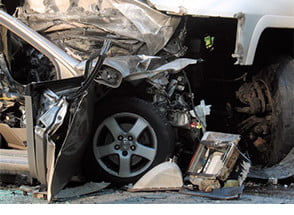The loss of a loved one is always a traumatic event, and it can be much more so when the death is sudden, and caused by the negligence or wrongful action of another.
In addition to the emotion and stress which accompanies such tragedy, wrongful deaths can take a heavy financial toll on families, which is why the State of Indiana has laws allowing for wrongful death suits.
The South Bend personal injury lawyers at our firm can help you file this type of claim to recover fair compensation for the damages you have suffered.
Here are some things you need to know about filing a wrongful death lawsuit in Indiana:
1. You only have two years. Unfortunately, the statute of limitations for wrongful death is the same as that of other suits in Indiana, which can be a very short period of time for something as complex as assembling a wrongful death case. Contact your attorney as soon as possible once you’ve decided to pursue a case.
2. A wrongful death suit is only to recuperate lost income and expenses incurred. You cannot sue for pain & suffering, or punitive damages in a wrongful death suit in Indiana. The law is designed to lessen the financial hardship suffered by the bereaved, and dependents can sue for lost wages of the deceased, but the law doesn’t allow for less direct costs to be redressed in the case of wrongful death. The law does however allow for a suit to include the lost “love and companionship” of the deceased.
3. Only those who are financially affected by the death can sue. The suit must be brought by the widow, widower or dependents of the deceased, or in the absence of such dependents, whoever paid for the hospitalization or funeral expenses can bring a suit.
The above are general guidelines for a wrongful death suit. However, every case is somewhat different.
It’s important to discuss your case with an attorney experienced in wrongful death cases as soon as possible, so that he can begin to construct the case for you within the deadline. While it is impossible to replace someone you’ve lost, it’s important for you and your family to not suffer financial hardship after a wrongful death.












